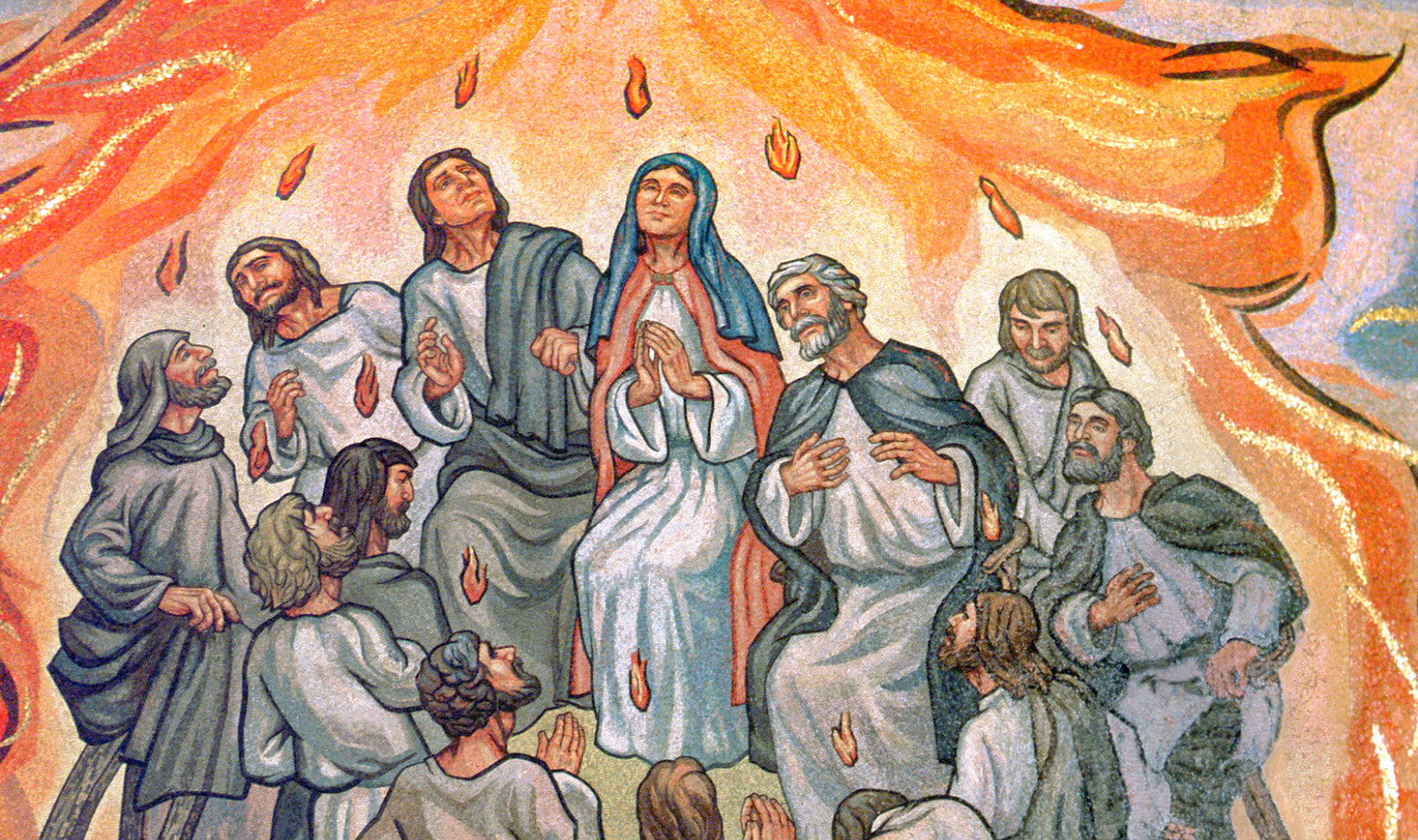Imagining a new world this Pentecost
“Life is pretty different being in lockdown. We are in a pause and it feels very different not being able to engage with people, be in places where there are many people, you can hang out with other people,” he said.
May 31, 2020

By Anil Netto
The other day, a rising tennis superstar, Stefanos Tsitsipas, said something quite profound:
“Life is pretty different being in lockdown. We are in a pause and it feels very different not being able to engage with people, be in places where there are many people, you can hang out with other people,” he said.
“I actually think they should put us in lockdown once a year — it’s good for nature, it’s good for our planet. I actually think it will be environmentally very beneficial.” “Life is such a hustle, and you never get the time to spend with your family and connect with them. Now it’s an opportunity to do so.”
Tsitsipas may not have realised it, but he stumbled on to an ancient truth from the Old Testament: the Jubilee Year.
This was not every year but every 50 years — at the end of seven cycles of sabbatical years — as stipulated in Leviticus 25:11: This fiftieth year will be a jubilee year for you; in it you will not sow, you will not harvest the grain that has come up on its own or in it gather grapes from your untrimmed vine. This was a time for the soil to regenerate itself, a time when there would be no exploitation, no oppression.
It was a year of rest, freeing people from debt and servitude, a year of restoration of property to original owners.
Even at the end of the Sabbatical year cycles – seven years – slaves would be freed.
In short, it gave the Earth and its people a breather. Remember, this was during a time when there was hardly any carbon footprint or much in the way of harmful polluting emissions, no toxic agro-business that promotes monoculture and reduces biodiversity. And yet God felt the need for the Earth and its people to have a breather. How much more do we need such a periodic breather now!
The pandemic has given the Earth a forced breather — at tremendous cost to lives and livelihoods. Someone pointed out that the poor, living in cramped crowded conditions, could hardly practise social distancing, nor could they “work from home”. How to “be safe” when it is a struggle to even put food on the table?
Still, this period in human history offers us a rare moment to reshape the world in a new direction. When we move to a postCovid-19 world, we will have to re-examine everything.
For instance, I cannot understand why my friends in Australia are saving on their electricity bills through the use of solar energy when here we are in Malaysia — blessed with abundant sunshine — we’re still relying so much on non-renewable energy and fossil fuels.
We need a stronger public health system — not just focusing on treating the sick, but preventing major illness by strengthening our immune systems and boosting our health in mind, body, spirit and soul. We need more social solidarity and less survival of the fittest. Think of retrenchment and unemployment benefits, universal basic pensions for senior citizens, universal healthcare.
The Market (with a big M) must be reembedded into the ecosystem so that it becomes a small “m” – ie in service of humanity instead of lording over us, exploiting workers and degrading the ecosystem.
We need to reduce emissions by finding more sustainable ways of farming and agriculture. And we have to protect our forests.
And yes, we have to discard our misguided notion of “economic growth”. We live in a world of finite resources. We cannot destroy the ecosystem just to reap more profits for the top 1 per cent who often, through tax avoidance tricks, may pay less than their fair share of taxes. It is time to reexamine our obsession with mega property development projects and mega-projects. All this comes at tremendous cost to the environment.
The argument that these projects provide jobs for the people does not hold water. There are lots of more sustainable ways to create employment in new or neglected sectors eg in organic and urban farming, nontoxic renewable energy, waste reduction and recycling, education and the arts and the building of non-polluting buses, ferries and trains.
We could regenerate our forests and clean up our rivers (although the lockdowns have shown, we don’t really have to do much, just stay at home and the air and rivers become cleaner!).
Every year, we are reminded at Pentecost of how creation is groaning, waiting to be set free.
But this year that message takes on added urgency.
There are two ways we can look at the recent pandemic and climate change.
One is the alarmist way, seeing these as the signs of the end-times. This would be a passive, defeatist attitude, as if we lack the agency to do anything about it when we know the Spirit empowers us to do more than we can imagine.
And so, the lockdowns have given the world a breather and given us the time and space to reflect on where we have gone wrong.
Psalm 104 of the Pentecost readings shows us how creation can be renewed if we don’t obstruct the way.
30 Send out your breath and life begins; you renew the face of the earth.
31 Glory to Yahweh for ever! May Yahweh find joy in his creatures!
It is time to imagine a new world and go about boldly refashioning this new kingdom. We need to be part of the solution, not the problem.







Total Comments:0